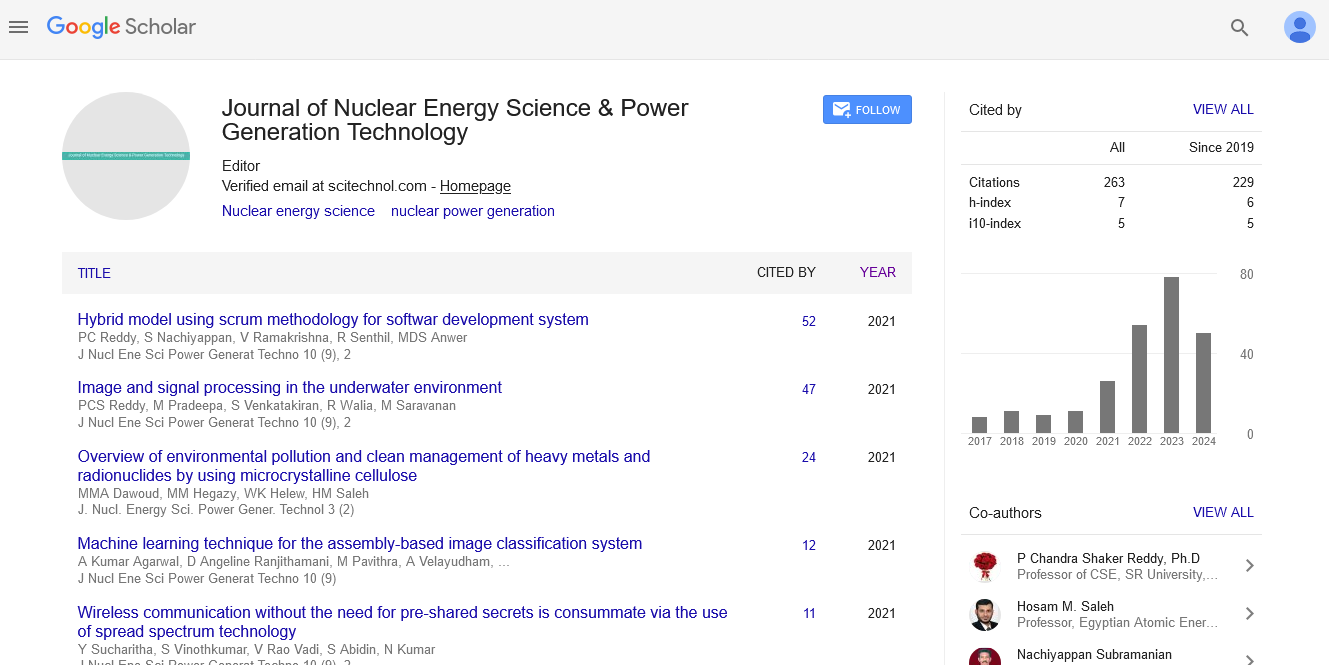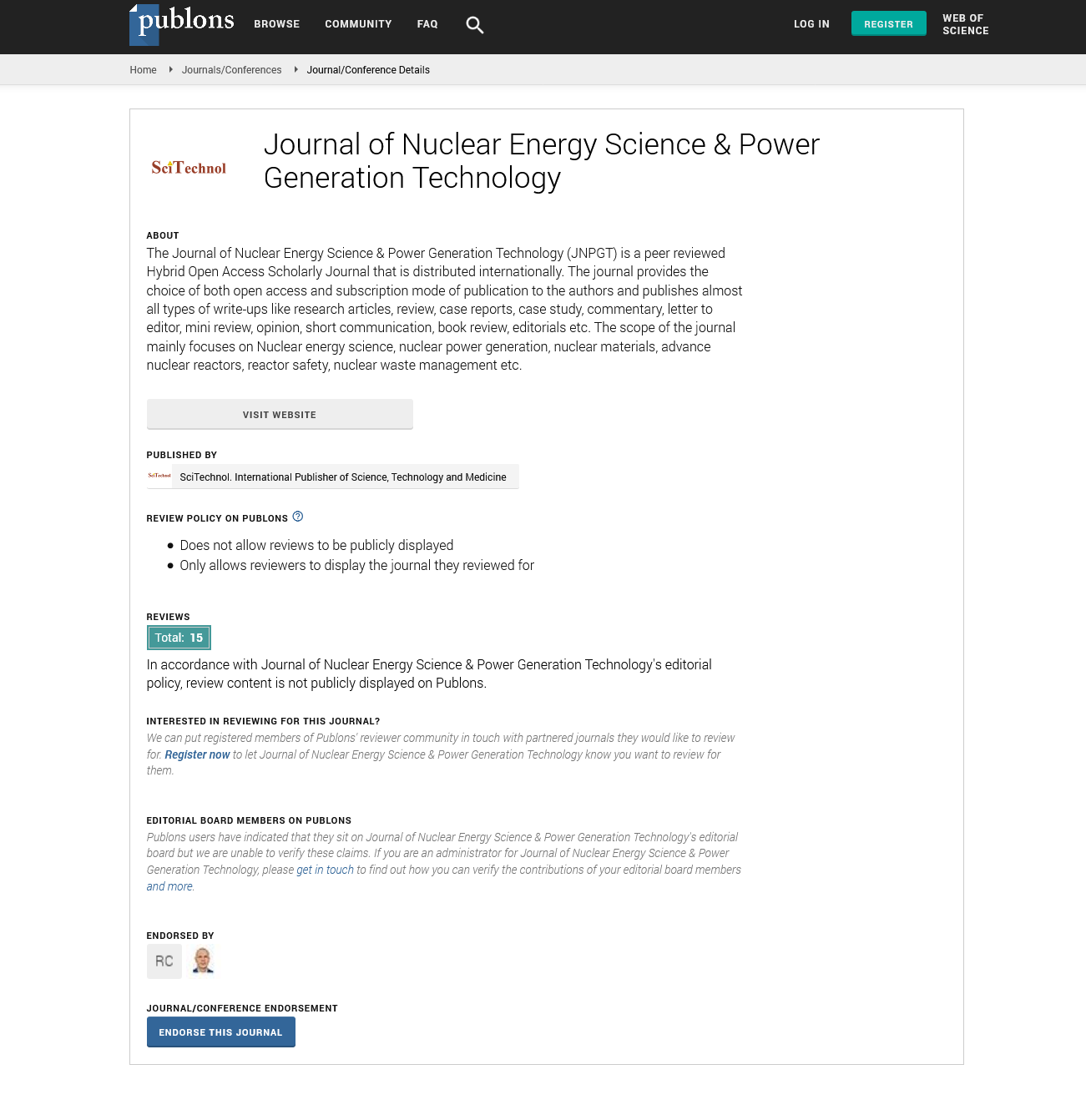Renewable energy based cogeneration on the example of micro scale installation with biomass-fired boiler and modified Rankine cycle
Krzysztof Sornek
AGH University of Science and Technology, Poland
: J Nucl Ene Sci Power Generat Technol
Abstract
Renewable energy based cogeneration systems are an interesting option for different sectors, including e.g. domestic, agricultural, and commercial ones. Among the available renewable sources, biomass is characterized by high caloric value, wide availability, and low prices. This paper shows the operation parameters of the prototypical micro- CHP system operating according to modified Rankine Cycle and using biomass-fired boiler as a heat source. Steam generated in two shell and tube heat exchangers (evaporator and superheater) is used to power the steam engine (connected with power generator). Another one shell and tube heat exchanger works as condenser. The analysed micro- CHP system is controlled by the dedicated control and measurement system based on WAGO PFC200 PLC controller. The following parameters are recording: temperature, pressure, medium flow, and medium level (in the boiler, oil circuit, steam-condensate circuit and water circuit) as well as current and voltage given by the power generator. The general view of the micro-CHP installation is shown in Figure 1. Presented results include: (a) the analysis of the amount of thermal power transferred from flue gas to oil (in the boiler), from oil to water (in the evaporator), and from oil to steam (in the superheater), (b) the analysis of pressure and steam flow variations related to the steam temperature, (c) the analysis of power generation in relation with steam pressure and flow. Conducted up to now tests allowed to obtain electric power at a level of ~1.05 kWel (compared to 100 kWth of the boiler’s nominal thermal power). Such a low value results from several limitations in actual oil and steam circuits construction (what causes limitations in temperature and steam pressure, and consequently in generated electric power). On the other hand, the expected level of power generated in the system should be 5-10 kWel (after introducing some modifications to the system construction).
Biography
Krzysztof Sornek is a Research Assistant at AGH University of Science and Technology in Krakow, Poland. He holds a MSc. in Energy from Faculty of Energy and Fuels (AGH UST). His research interests includes: renewable energy sources, micro cogeneration technologies, automation in energy systems, and electromobility. He is supervisor of Eco-Energy and AGH Solar Plane student interest groups and AGH Solar Boat project. Moreover, Krzysztof Sornek is President of the Board at the Institute for Sustainable Energy.
E-mail: krzysztof.sornek@agh.edu.pl
 Spanish
Spanish  Chinese
Chinese  Russian
Russian  German
German  French
French  Japanese
Japanese  Portuguese
Portuguese  Hindi
Hindi 

